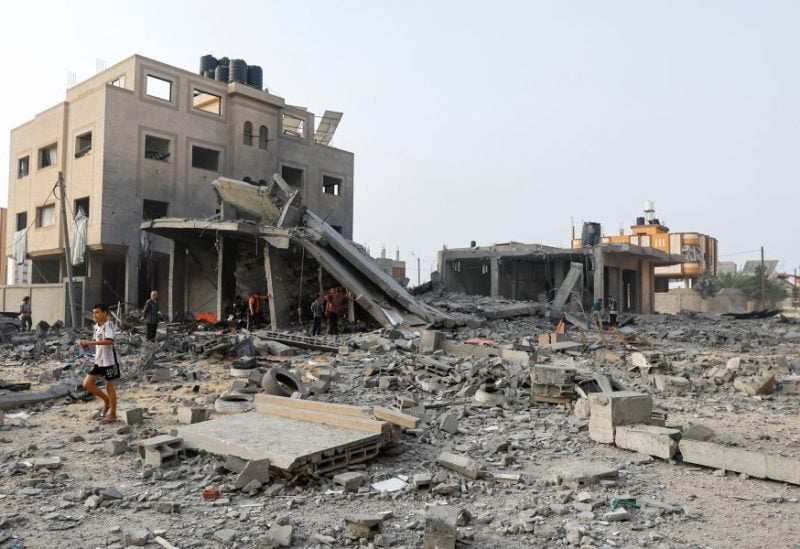
Palestinians inspect the site of Israeli strikes on a house in Khan Younis in the southern Gaza Strip, October 23, 2023. REUTERS/Ibraheem Abu Mustafa
Military and political analyses are becoming more prevalent amid the ongoing conflict in Gaza. Some of these analyses suggest the possibility of a regional war, speculating that American involvement in the conflict might lead to Iran’s intervention or a call for its militias in the region to attack U.S. bases.
According to observers cited by “Sawt Beirut International,” it is true that Iran possesses assets capable of destabilizing the region. However, when Iran senses that any of these assets are at risk of being exposed or ignited, it is willing to discard them without hesitation and abandon these assets in favor of an impending settlement.
One of the foremost concerns currently occupying Iran, according to these observers, is not the Gaza war, nor the northern front with Israel or southern Lebanon. Instead, it is the intricacies of the domestic situation. The majority has been unable to align with the principles of the revolution and does not find comfort in the restrictions imposed by the regime. They suffer from internal insecurity, shortages in necessities, be it food, construction materials, or healthcare facilities. More importantly, there is a tightening grip on minorities, with harassment related to the practice of their rituals and beliefs and disturbances surrounding places of worship. Above all, specific standards have been imposed on women and their appearances in clothing, leaving no room for choice. There is no freedom in decision-making, be it in politics or freedom of expression. No political and intellectual parties operate independently, and Iranian thinkers are sidelined and persecuted, while everyone is subjected to the dictates of the revolution, adhering to its philosophy and showing loyalty to its mandates.
These dry conditions have raised concerns about the regime’s behavior, the inevitability of internal confrontations, external economic pressures, currency fluctuations, and declining foreign currency reserves. Furthermore, the revolutionary leadership has realized the impossibility of achieving its goals both domestically and abroad. Internal opposition continues unabated, consuming the leadership’s energy as it deals with domestic issues while monitoring external developments. The leadership acknowledges the negative repercussions of Tehran’s harmful behavior present in all regions, especially now in Latin American capitals, and the world’s growing caution and reduced support, whether in Lebanon or Syria. All these complex and exhausting factors have prompted Iran’s leadership to adopt a softer approach in its interactions with neighboring countries, based on mutual interests and mutual respect for regimes, while avoiding interference in the internal affairs of Gulf, Arab, and even global states.